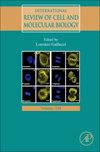趋化因子受体在胃肠粘膜中的作用。
3区 生物学
Q1 Biochemistry, Genetics and Molecular Biology
International review of cell and molecular biology
Pub Date : 2024-05-31
DOI:10.1016/bs.ircmb.2024.02.003
引用次数: 0
摘要
趋化因子受体对口腔和肠道粘膜的免疫反应至关重要。胃肠道粘膜的特点是存在免疫群体,因为它很容易受到炎症和传染病的侵袭,需要免疫监视。趋化因子受体在免疫细胞上表达,在胃肠道组织 "归巢 "中发挥作用,但其他非免疫细胞也表达这些受体,以实现各种生物功能。CCR9、CXCR3 和 CXCR6 在胃肠粘膜炎症和肿瘤情况下的 T 细胞反应中发挥着重要作用。然而,在胃癌细胞中也发现了 CXCR6,这凸显了趋化因子受体在不同病症中的不同作用。另一方面,CCR4 和 CCR8 对胃肠道组织中 Treg 的迁移至关重要,与粘膜癌的不良预后相关。其他趋化因子受体在促进髓细胞浸润方面也很重要,其作用取决于具体情况。此外,CXCR4 和 CXCR7 也存在于胃肠道肿瘤细胞中,众所周知,它们能刺激肿瘤细胞增殖、迁移和侵入其他组织,并具有其他促肿瘤功能。要确定粘膜免疫的基本过程,并为胃肠道疾病量身定制治疗方法,就必须了解趋化因子受体及其配体在这些粘膜组织中发生的复杂相互作用。本文章由计算机程序翻译,如有差异,请以英文原文为准。
Role of chemokine receptors in gastrointestinal mucosa.
Chemokine receptors are essential for the immune response in the oral and gut mucosa. The gastrointestinal mucosa is characterized by the presence of immune populations because it is susceptible to inflammatory and infectious diseases, necessitating immune surveillance. Chemokine receptors are expressed on immune cells and play a role in gastrointestinal tissue-homing, although other non-immune cells also express them for various biological functions. CCR9, CXCR3 and CXCR6 play an important role in the T cell response in inflammatory and neoplastic conditions of the gastrointestinal mucosa. However, CXCR6 could also be found in gastric cancer cells, highlighting the different roles of chemokine receptors in different pathologies. On the other hand, CCR4 and CCR8 are critical for Treg migration in gastrointestinal tissues, correlating with poor prognosis in mucosal cancers. Other chemokine receptors are also important in promoting myeloid infiltration with context-dependent roles. Further, CXCR4 and CXCR7 are also present in gastrointestinal tumor cells and are known to stimulate proliferation, migration, and invasion into other tissues, among other pro-tumorigenic functions. Determining the processes underlying mucosal immunity and creating tailored therapeutic approaches for gastrointestinal diseases requires an understanding of the complex interactions that occur between chemokine receptors and their ligands in these mucosal tissues.
求助全文
通过发布文献求助,成功后即可免费获取论文全文。
去求助
来源期刊

International review of cell and molecular biology
BIOCHEMISTRY & MOLECULAR BIOLOGY-CELL BIOLOGY
CiteScore
7.70
自引率
0.00%
发文量
67
审稿时长
>12 weeks
期刊介绍:
International Review of Cell and Molecular Biology presents current advances and comprehensive reviews in cell biology-both plant and animal. Articles address structure and control of gene expression, nucleocytoplasmic interactions, control of cell development and differentiation, and cell transformation and growth. Authored by some of the foremost scientists in the field, each volume provides up-to-date information and directions for future research.
 求助内容:
求助内容: 应助结果提醒方式:
应助结果提醒方式:


